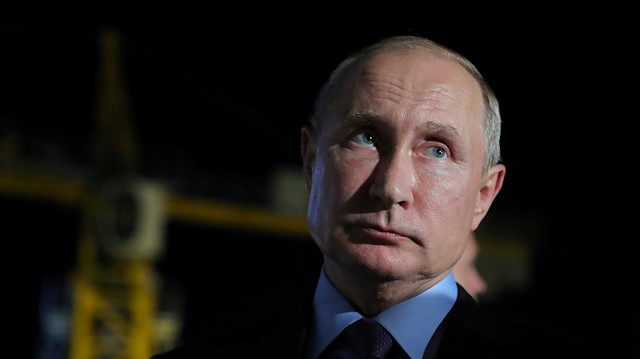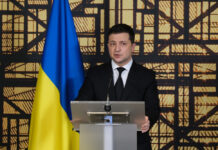By Jasvinder Nakhwal and Rachel Cook
Russian assurances on prison conditions are highly topical and have been crucial to the UK courts’ decisions in recent cases on whether to extradite individuals to the Russian Federation. Extraditions from the UK to Russia are, for the time being, at a standstill, owing to deficiencies in the independent monitoring of Russian prison conditions, which undermine the assurances provided by the state, and pending evidence to the contrary.
The UK’s relationship with the Russian Federation is complex, to say the least. In 2006, the poisoning of Alexander Litvinenko demonstrated how Russian operatives are well able to administer a deadly poison in broad daylight on British soil. Despite stabilising for a short while, UK-Russia diplomatic relations were once again plunged into conflict in 2018, with the poisoning of Sergei and Yulia Skripal in Salisbury. Both incidents caused a major diplomatic crisis and legal consequences, including for Litvinenko’s poisoning, a Public Inquiry and a serious extradition standoff.
Despite President Putin’s denial of any involvement in the Skripals’ poisoning, the UK publicly condemned Russia and, last year, expelled 23 diplomats from the Russian Embassy in London. Condemnation also came from the European Union, which sanctioned the heads of the Russian military intelligence for their suspected involvement, and the US, which imposed sanctions on the basis that the Russian government was responsible. Then, in August 2019, the US imposed further sanctions on Russia relating to the state’s refusal to guarantee that it will no longer use chemical weapons.
The UK’s view is that Russia was willing to violate the Chemical Weapons Convention, to which it is a signatory, and to breach international law by undermining the UK’s sovereignty. The UK government’s clear position is that Russian assurances are implausible and unreliable.
Climate of Crackdown and Enforcement
When responding to the Salisbury crisis and action against the Russian state, then Prime Minister Theresa May declared: “…we will continue to bring all the capabilities of UK law enforcement to bear against serious criminals and corrupt elites. There is no place for these people – or their money – in our country”. It can be difficult for the UK authorities to differentiate between “these people”, i.e. Russians who are serious criminals and corrupt elites, and those who are merely accused of, or are presumed to be such individuals. An obvious example of how this distinction has the potential to be applied arbitrarily is the US Treasury’s list of those considered for US sanctions. The list names every senior member of Russia’s political administration and, replicating the Forbes rich list, every Russian oligarch with a net worth in excess of $1 billion. It appears that the starting point is that all Kremlin politicians and wealthy Russians are suspicious.
In parallel with these pronouncements, the UK has seen the introduction of Unexplained Wealth Orders, Account Freezing Orders and various anti-money laundering rules, providing the enforcement authorities (both UK and foreign) with key investigative tools in combatting financial crime. New legislation will also see a public register on the ultimate beneficial owners of UK property introduced in 2021, with a view to preventing criminals from using the UK property market to launder criminal funds. Furthermore, with Deutsche Bank likely receiving a significant fine for its role in the $20 billion Russian laundromat case. Financial institutions are well aware of the risk of criminal investigation for money laundering and increasingly cautious when conducting due diligence and accepting funds from wealthy foreigners. This applies, in particular, to individuals who are deemed to be politically exposed persons with links to foreign governments.
Extradition treaty
On the other hand, our diplomatic agreements for cross-border cooperation with the Russian Federation remain and continue to be honoured, by the UK at least. Given the Russia’s membership of the Council of Europe, the UK has even relieved the Russian Federation of the need to demonstrate a prima facie case when the UK extradition court decides whether or not to allow extradition to Russia.
In 2007, the Russian government refused to extradite Mr Lugovoi, who was accused in the UK of poisoning Mr Litvinenko. There is no doubt that if asked to do so, Russia would likewise refuse to extradite the Russian citizens charged with poisoning the Skripals. It is the case that Russia, as a matter of policy, does not extradite its citizens to any state. However, this has been seen as a convenient basis on which to avoid bringing the alleged killers to justice.
It is not uncommon for Russia to make extradition requests to the UK for current or former Russian nationals living here. Under the UK extradition legislation those requests are reviewed at the initial stage by the Secretary of State for the Home Department, and under the terms of the diplomatic arrangements with the Russian Federation, are almost always accepted and passed to the UK extradition court. These extradition proceedings are usually resisted by the wanted individuals on several grounds, including that the request is made for the purpose of persecuting or punishing them on account of their political opinions; that any extradition would be contrary to their human rights including their right to a fair trial; and that Russian prison conditions would breach their right not to be subjected to inhuman and degrading treatment or punishment. There are well publicised cases with some of the most egregious examples of appalling treatment in Russian prisons, to intimidate, harass and ultimately to stifle. These have led to the development of disease, mental illness and death. Even in general, where the prisoner is not a political target, Russian prisons are reported to be overcrowded, with poor sanitation and numerous other problems.
[su_pullquotes]What is perhaps most startling about recent UK extradition case law is that the prevailing political backdrop has played a relatively limited role in the UK courts’ decisions on whether to accept such assurances and extradite individuals to Russia.[/su_pullquotes]
Other defence arguments that are typically made arise from real concerns about a lack of a fair trial (a human right enshrined in Article 6 of the Convention). This is in circumstances where ‘telephone justice’ (whereby informal influence or pressure is exerted on the Russian judiciary) is the norm, and conviction rates are as astonishingly high as 99.75 per cent.
One way in which Russia has responded to the UK courts’ concerns about these issues, in particular that prison conditions would amount to inhuman treatment, has been to provide assurances (i.e. promises) to the contrary, and in essence that the human rights of the individual in question would be respected. What is perhaps most startling about recent UK extradition caselaw is that the prevailing political backdrop has played a relatively limited role in the UK courts’ decisions on whether to accept such assurances and extradite individuals to Russia.
Brief history of extradition cases
All extradition requests heard in England and Wales are initially heard in Westminster Magistrates’ Court. In the mid-2000s, the Senior District Judge of that court stopped extraditions to Russia until the state was able to demonstrate that the prison conditions were not inhuman or degrading. This position remained the same in 2012, when the European Court of Human Rights held in Sergey Ananyev’s case that the prison conditions in Russian remand prisons (where prisoners were held before trial) breached human rights . The Ananyev judgment annexed a list of 80 other judgments demonstrating human right breaches in Russian remand prisons. The European court said that “the set of facts underlying these violations was substantially similar: detainees suffered inhuman and degrading treatment on account of an acute lack of personal space in their cells, a shortage of sleeping space, unjustified restrictions on access to natural light and air, and non-existent privacy when using the sanitary facilities”.
In 2012, an extradition request for Georgy Trefilov was refused, partly on the basis that the conditions of the remand prison might amount to inhuman or degrading treatment. There followed a series of Russian extradition cases where the court held that any person detained in a Russian prison was at real risk of inhuman or degrading treatment, effectively halting further extraditions.
At that stage, regardless of what crime they had been accused, or whether it was a politically motivated prosecution, anyone in the UK being sought by Russia was able to resist extradition by relying on the poor state of Russian prison conditions.
Assurances
The position changed again in 2015. The Senior District Judge of Westminster Magistrates’ Court declined a Russian extradition request for Igor Kononko on the grounds that he could not have a fair trial, but in doing so, he indicated that the court would be prepared to accept assurances from Russia about prison conditions to confirm that they would not amount to torture or inhuman or degrading treatment or punishment.
In response to the judge’s indication that the court was open to assurances, the Russian Federation began to provide them. In 2016, in Evgeny Korolev’s case, Russia provided assurances about prison conditions, but the UK court deemed them to be too vague and refused the extradition request. The following year, in 2017, the UK court in Stanislav Dzgoev’s case accepted Russian assurances on prison conditions. Mr Dzgoev appealed to the High Court. In refusing his appeal, the High Court went so far as to articulate the assurances that they required the Russians to give, which were subsequently provided in that form. Mr Dzgoev was extradited to Russia.
Further Russian extradition cases followed, including that of Egor Schuppe, the son-in-law of Boris Berezovsky, a late Russian oligarch and prominent Putin critic. During this period, those individuals who successfully resisted extradition to Russia usually did so based on arguments that they could not have a fair trial in Russia or that their prosecutions were politically motivated. Arguments on prison conditions failed because of what were deemed to be satisfactory Russian assurances, promising special conditions for those being extradited that were sufficient to allay the UK courts’ concerns about human right breaches.
In October 2017, Westminster Magistrates’ Court acceded to a request to extradite Alexey Shmatko, rejecting all his arguments, including those relating to prison conditions, again owing to an acceptance of Russia’s assurances. Mr Shmatko appealed to the High Court and his extradition was paused pending the outcome of his appeal.
In the meantime, in 2018, the UK court found that another Russian, Alexander Ioskevich, could be extradited, despite him also raising arguments on prison conditions and breaches of human rights. Like Mr Dzgoev, Mr Ioskevich was extradited to Russia. Mr Ioskevich’s lawyers had raised concerns that Russian assurances could be reneged upon once he was in Russia, by which time it would be too late because he would already be there. The High Court held that Russia had a powerful incentive to honour its assurances because to do otherwise would impact negatively upon the willingness of the UK courts to accept future assurances. This is a point of concern given that a failure to adhere to assurances given meet no sanction, other than acting as evidence of a breach to support arguments in subsequent extradition cases, and only if vulnerable prisoners are willing to give that evidence.
Recognition of political backdrop
Alexander Shapovalov, unlike the other Russians mentioned above, lived in Scotland, not England, and, in 2018, his extradition hearing took place in Edinburgh rather than London. Unlike the English court, Sheriff Ross rejected the Russian assurances on prison conditions provided in that case, distinguishing Dr Shapovalov’s case from those of Mr Dzgoev and Mr Ioskevich. The Scottish court expressed that there was a good reason to reconsider the benefit of doubt afforded to Russia and the presumption that their assurances on prison conditions could be relied upon. The Scottish judgment referred directly to the Skripal poisonings and the diplomatic breakdown in the relationship between the UK and Russia since the Ioskevich case. The Scottish court declared that “any trust of the Russian Federation as a member of the Council of Europe must be placed in some question by the sanctions visited on them by that body, the non-payment of their financial contribution, and the possibility… that the Russian Federation may withdraw from the Council of Europe”.
The Shapovalov judgment was not binding on the Westminster Magistrates’ Court. However, appeal judgments from the UK High Court are binding on the Magistrates’ Court. In 2019, the UK High Court dismissed the lower court’s decision to extradite Mr Shmatko finding that the Russian prison assurances could not be relied upon. This was largely on the basis that there was insufficient independent monitoring of the Russian prison in which Mr Shmatko would be held if he were to be extradited. The Russian assurances were found to be inadequate. Mr Shmatko would not be extradited on the basis of the facts of his case.
The Shmatko judgment went further and expressed that while it was not necessary to consider it in this case, the court could see “good reason to reconsider the benefit of the doubt accorded to the Russian Federation as a member of the Council of Europe in cases of this kind”. The court was raising concerns about the acceptance of Russia’s assurances generally, regardless of the evidence on a lack of proper prison monitoring.
In 2018, in Alexander Zmikhnovskiy’s extradition proceedings, similar arguments were made on prison conditions to those made by Mr Shmatko in his appeal, and Mr Zmikhnovskiy’s extradition was refused. Similarly, it was partly on the basis of limited prison monitoring. A post-script to the Zmikhnovskiy judgment noted that Russia had provided insufficient information about prison conditions and that it was fast becoming the UK court’s view that the Russian Federation should support any request for extradition with evidence, such as a video or photographs of any prison cell subject to an assurance, and that Russia should re-consider its view that experts are not allowed to visit the prisons in question. This led to a summarily discharge from extradition in a subsequent case of Dmitry Sokolov.
The onus is now on Russia. If it wants the UK courts to extradite individuals, it will need to engage more fully to satisfy the courts that prison conditions will not breach human rights.
Prison conditions
The UK court (and the Secretary of State) has an obligation to consider each case separately, even if the court has been presented with similar country-specific evidence on another case.
The issue of prison conditions is fundamental to recent judgments refusing extraditions to Russia. Russian assurances that it will house those extradited in special prison cells that will not breach their human rights must be understood against the backdrop of the conditions of the general prison population. The reality is that there are numerous reports of physical violence and humiliating, psychological torture in Russia’s prisons, perpetrated by both the prison guards and other inmates unimpeded or even encouraged by officers. There has been extensive media coverage of the fates of Mikhail Khodorkovsky and Sergei Magnitsky, which is somewhat historical. However, the threat of torture and inhuman treatment in Russian prisons is current.
In July 2019, the Russian opposition leader, Alexi Navalny, was serving a 30-day sentence for encouraging followers to attend an anti-government protest. While in prison, he became ill and was taken to hospital. The doctor suspected that Mr Navalny had been poisoned and, contrary to the doctor’s medical advice, he was discharged from hospital by the prison officers and returned to the prison. While facts continue to emerge about this recent event, there is already a list of potential human rights breaches in this single example. In the absence of reliable assurances from Russia, the risk of human rights breaches in extradition cases is very real. If assurances cannot be relied upon because the Russian Federation cannot be trusted, what protection is there for those extradited?
Next steps
The UK court has informed Russia what it needs to do in order to satisfy the Magistrates’ Court. It must engage meaningfully with the UK proceedings. The UK courts have not yet refused to accept the Russian assurances on the basis that the promises are simply unreliable because they come from the Russian authorities. The main contention at the moment is the lack of independent monitoring of prison conditions. With some minor changes to Russian domestic legislation, this problem could, in theory, be rectified, but this would mean a fundamental shift in the way in which criminal justice operates in Russia.
[su_pullquotes]The UK court system’s independence from the UK government may have caused it to be slow to factor the political background into its consideration of the credibility of Russian assurances on human rights.[/su_pullquotes]
Given the political backdrop, observers may find it difficult to believe that the UK courts would continue to accept the Russian assurances at face value. The constitutional separation of the UK’s government and judiciary means that the government cannot force its views on the courts. It is the UK courts’ responsibility to determine whether the Russian prosecutions, which are the subject of the extradition request, are politically motivated or whether they should rely upon assurances provided by the Russian authorities. While the political dimension of the UK-Russian relationship has not yet had the direct impact on extraditions that one might expect, the fact that the High Court and the Scottish court have begun to challenge the benefit of the doubt given to the Russian state in their judgments suggests that this may change.
The UK court system’s independence from the UK government may have caused it to be slow to factor the political background into its consideration of the credibility of Russian assurances on human rights. However, the UK courts’ attitude and approach to Russian assurances and prison conditions is in the process of further development, which currently, happens to have benefitted those whose extradition is being sought. Whether and if so, how, Russia will respond to these changes and how the courts will approach future Russian assurances remains to be seen. The extent to which the courts’ decision making should take account of the actions and credibility of the requesting state is a worthy debate, keeping in mind that the integrity of the UK courts must remain sacrosanct. Proper debate is also needed on the question of whether it is suitable to rely on mutual recognition by virtue of membership of an organisation of which the UK is a part, such as the Council of Europe, even when the operation of the criminal justice system in that state is severely flawed. In contrast to the criticisms made of the Russian system, in which the judiciary is described as subservient to the political will of the government and/or powerful political figures, the independence of the British judiciary remains fundamental in the pursuit of justice.
About the Authors
 Jasvinder Nakhwal has over 10 years’ experience acting for many high-profile Russian nationals in numerous complex extradition cases involving requests from the government of the Russian Federation. She has succeeded in preventing extradition in all those cases on a number of grounds, including political motivation, abuse of process and human rights.
Jasvinder Nakhwal has over 10 years’ experience acting for many high-profile Russian nationals in numerous complex extradition cases involving requests from the government of the Russian Federation. She has succeeded in preventing extradition in all those cases on a number of grounds, including political motivation, abuse of process and human rights.
 Rachel Cook is Senior Associate at Peters & Peters. She works on a range of fraud, white-collar crime, tax enforcement and regulatory matters. Whilst she has significant experience acting for clients in extradition proceedings, Rachel also regularly makes successful representations to the Secretary of State, Home Office and Metropolitan Police Extradition Squad in order to defeat extradition requests without the need for a substantive hearing.
Rachel Cook is Senior Associate at Peters & Peters. She works on a range of fraud, white-collar crime, tax enforcement and regulatory matters. Whilst she has significant experience acting for clients in extradition proceedings, Rachel also regularly makes successful representations to the Secretary of State, Home Office and Metropolitan Police Extradition Squad in order to defeat extradition requests without the need for a substantive hearing.




































































